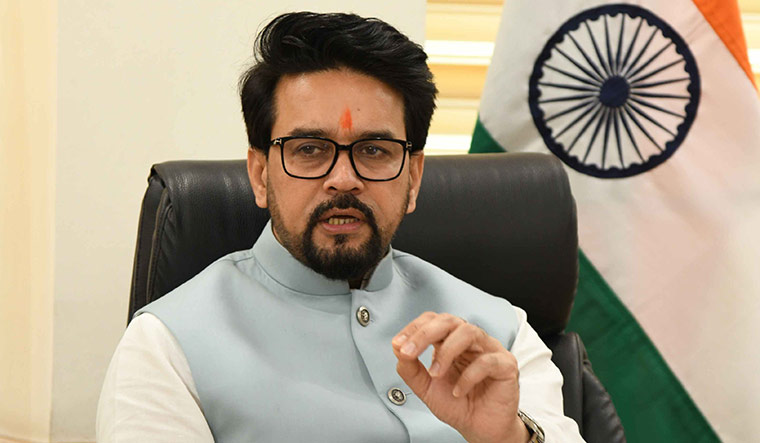Union Minister Anurag Thakur has asserted that the ‘White Paper’ on the Indian Economy, presented by the Centre in Parliament, has laid bare the shortcomings of the Congress party’s economic policies. Speaking during a visit to Dharamshala, Thakur highlighted the significance of the White Paper in exposing the Congress’s mismanagement of the economy, emphasizing that the party’s focus on the family had led to detrimental consequences for the country.
“The White Paper has exposed the Congress… Family was important for Congress. The policies of Congress have caused great harm to the country,” remarked Anurag Thakur.
Thakur further questioned the Congress’s track record, alleging that their governance had resulted in economic setbacks for the nation. He stressed that the government had refrained from issuing the White Paper earlier in the interest of the country but decided to unveil it now to shed light on the economic comparisons between the Congress-led UPA governments and the BJP-led NDA governments.
The White Paper, compiled by the Ministry of Finance, scrutinizes the economic governance over a decade under both administrations, from 2004-05 to 2013-14 for the UPA and from 2014-15 to 2023-24 for the NDA.
Finance Minister Nirmala Sitharaman, while addressing the Rajya Sabha debate on the White Paper, criticized the UPA’s economic policies, alleging a failure to capitalize on the favorable economic environment inherited from the Vajpayee government. Sitharaman accused the UPA of adopting ill-targeted fiscal policies and wasteful expenditures for political gains.
She explained the delayed release of the White Paper, attributing it to concerns over negative repercussions on investor sentiment. Sitharaman expressed confidence in the government’s ability to steer the economy to greater heights, aligning with Prime Minister Narendra Modi’s vision of achieving significant economic progress in the coming years.
The White Paper serves as a comprehensive analysis of the nation’s economic trajectory under different political administrations, aiming to provide insights for future policymaking and development strategies.

















